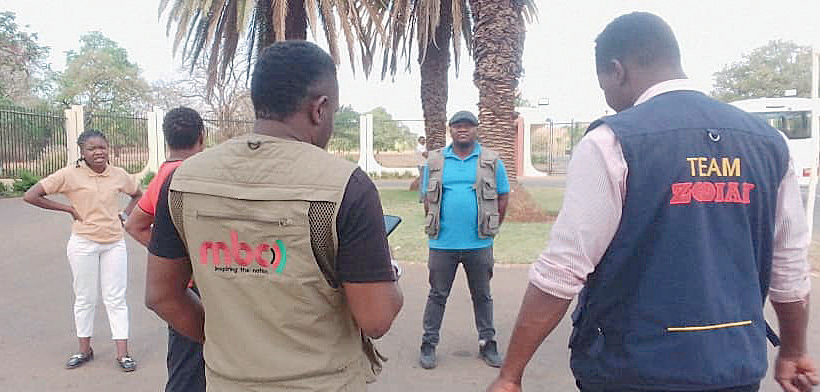‘RBM Fund loses K12bn’
A special audit report on Export Development Fund (EDF), a Reserve Bank of Malawi subsidiary, says acts of negligence and abuse of office by the firm’s management has resulted in the organisation losing about K12.8 billion through questionable business decisions.
According to the report by private forensic accountants Fletcher and Evance, the fund has lost the money through its Commodity Market Making (CMM) initiative which EDF management had allegedly been administering without adhering to the laid down procedures.
EDF is a wholly-owned subsidiary of RBM—the regulator and registrar of financial institutions—and was established in 2012 as a private development finance institution (DFI) for export businesses.

The fund introduced the CMM initiative to assist local enterprises with the potential to secure export supply contracts, but could hardly access loans and other forms of financial facilities from commercial banks and other lending institutions due to lack of collaterals.
The CMM initiative, established in 2017, was conceived according to a new Framework for Raising Exports, which Reserve Bank of Malawi developed.
The assignment also required Fletcher and Evance to check fraudulent and corruption activities and quantify the losses and potential losses.
The audit firm’s brands and communications manager Tithokoze Thole confirmed in an interview conducting the special audit on the initiative on instructions from EDF board of directors, but declined to be drawn into discussing the report referring Weekend Nation to EDF.
She said: “Professional standards do not allow us to comment on reports of our clients through the media so talk to EDF who own the report.”
According to the report, the K12.8 billion loss resulted from some financial deals EDF had with private firms and other selected investment transactions of the fund between 2017 and 2020.
It alleges that the conduct of EDF management in operating the CMM initiative without following processes and procedures and credit risk assessment, “clearly indicated acts of gross negligence and abuse of office.”
“This has contributed to EDF losing over K6.5 billion in actual and potential loss,” reads in part the special report.
The report further faults CMM transactions which it states were done without proper due diligence of the aggregators, buyers and customers making EDF fail to collect the money which are now bad loans.
“EDF, through CMM intervention, operated outside its mandate of being a commodity financer to a trader and exporter of commodities. This made CMM lose focus and concentrated on projects which resulted in losses,” reads the report.
Additionally, the audit found that the EDF paid over K7.4 billion in interest from 2016 to 2020 on the loans the fund borrowed from Trade and Investment Bank (TDB) and Afleximbank.
“With most of its loan portfolio in a non-performing state, EDF may not collect the related interest charged to its clients,” it states.
The audit also faults the board of directors for proceeding to approve a structured joint venture with a firm that had a non-performing loan where EDF is also bound to lose over K6.3 billion as the dealings show traits of corruption and collusion.
Further, the audit condemns other EDF investments that were allegedly made without proper board guidance on treasury management.
During their investigations, the auditors also noted what they describe as a ‘fragile internal structure’ as evidenced by alleged lack of reporting serious issues to EDF board by the RBM internal audit team assigned to audit the fund.
“Notwithstanding the findings above, EDF’s board of directors had gaps in corporate governance and oversight role. These gaps contributed to EDF incurring a total of actual and potential loss amounting to over K12.8 billion,” reads the report.
The auditors also observed that EDF management’s conduct on CMM transactions amounted to a fundamental breach of their employment contracts’ express or implied terms and “the pattern of behaviour is sufficiently serious to undermine the relation of trust and confidence and, therefore, amounts to gross misconduct.”
The auditors also recommended to the EDF board of directors to consider taking up disciplinary action bordering on non-compliance with set procedures, gross negligence and abuse of office against officers responsible for CMM operations, risk mitigation and finance.
The auditors also recommend instituting investigations into alleged dubious dealings with the other firms as there are indications of possible forex externalisation.
Further, the auditors have recommended to EDF to outsource internal audit services to complement the internal audit service provided by the sole shareholder, RBM.
In an interview on Monday, EDF board of directors chairperson Neil Nyirongo confirmed the existence of the special audit report.
The board chairperson also said his team was working on implementing the specific recommendations made by the auditors in their report.
“The board agreed to implement the recommendations… So we will be implementing as and when it is felt fit.”
However, the auditors did not spare the board of directors themselves as they also condemned them for failing to provide the oversight role to the fund.
“Since, ultimately, almost all organisation failure is a board failure, the outlined episodes must … end with board members taking responsibility.
“The shareholder should consider assessing the EDF’s board composition, identify root causes to board performance and issues as evidenced by gaps in governance and oversight and take appropriate action,” recommends the auditors.
The queries are coming a few months after the Public Accounts Committee of Parliament questioned the legality of EDF, wondering why RBM allowed the institution to operate for over nine years without a licence.
Despite all this, in May last year, RBM also announced the establishment of a structured gold market manned under the same EDF to legalise gold trade—mined by artisanal, small and medium miners that was being sold illegally in the country.
When contacted on Wednesday this week what RBM had done to the board as per the recommendations, the bank’s spokesperson Ralph Tseka asked for a questionnaire which he did not respond to at press time





